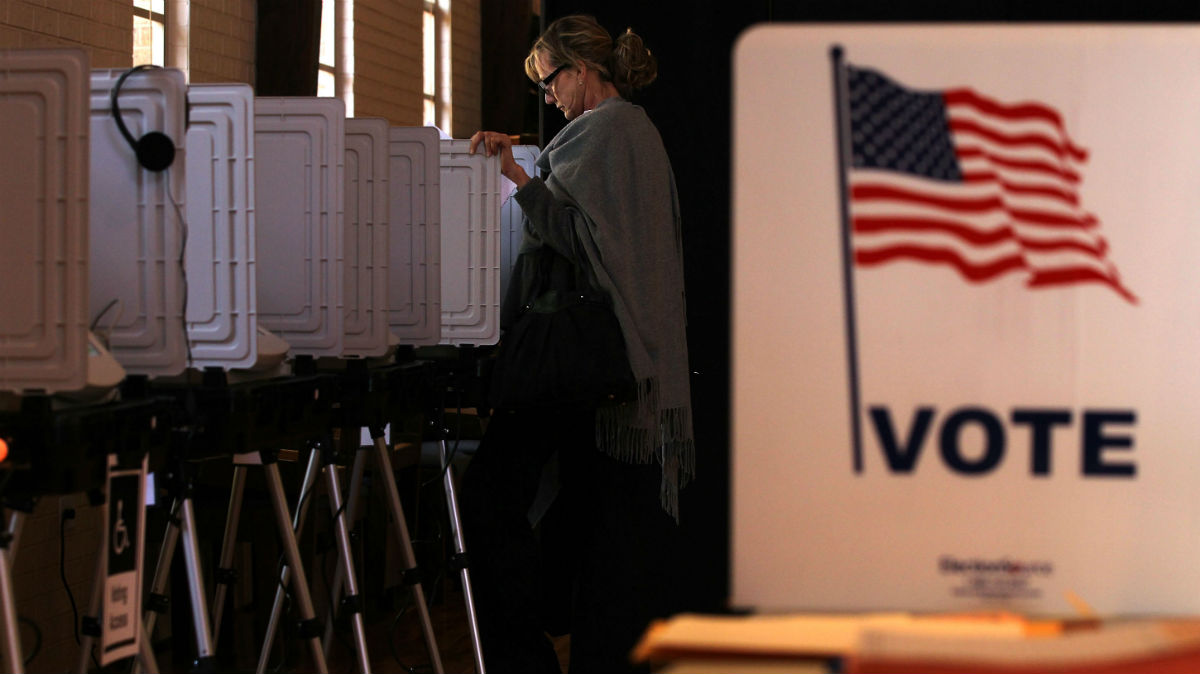
What to Know
- Prop 5 is one of 10 statewide ballot propositions in the Nov. 5 California election.
- The proposition would amend a longtime rule in the state constitution that requires two-thirds of voters to approve certain bonds.
- A Yes vote would mean certain bonds and related tax increases, including funds for affordable housing, are more likely to be approved in California.
California voters will decide a statewide proposition this fall that would make it easier for governments to borrow money for affordable housing and local infrastructure projects by changing a voter-approval requirement that dates to the late 1800s.
Under current California law, local governments seeking bonds to pay for projects like parks, police and fire stations, and affordable housing need to ask voters for permission. They also need a supermajority of the vote.
But if voters approve a legislative constitutional amendment on the November ballot, that threshold would decrease from the current two-thirds, a vote requirement that was part of the 1879 California Constitution, to 55 percent.
Get top local stories in Southern California delivered to you every morning. >Sign up for NBC LA's News Headlines newsletter.
Here's what to know about Prop 5.
What would Prop 5 do?
Prop 5, placed on the ballot by state lawmakers, amends the California constitution by lowering the requirement to approve local government bonds to 55 percent of voters instead of a supermajority -- at least two-thirds of voters. That would make it easier for local governments to borrow for affordable housing projects and other local infrastructure, like fire and police stations, road repairs, parks and more.
It would apply to future bonds, including any approved on this year's November ballot.
Those bonds would then be repaid with higher property taxes.
A Yes vote on Prop 5 means certain local bonds and the property taxes that come with them could be ok'd by 55 percent of the vote of the local electorate instead of the current two-third requirement. The bonds would have to be for affordable housing, supportive housing, or public infrastructure.
A No vote means things stay the same, leaving the supermajority requirement in place.
The Legislative Analyst's Office notes that a citizens' oversight committees would be appointed to supervise spending. The nonpartisan agency's report said certain local bonds are more likely to pass under the amended rules.
"A lower voter approval requirement would make it easier to pass local general obligation bonds for housing assistance and public infrastructure," the LAO report said. "Recent local election results suggest that an additional 20 percent to 50 percent of local bond measures would have passed under Proposition 5’s lower voter approval requirement. Those measures would have raised a couple billion dollars over many years. A lower voter approval requirement also could mean local governments propose more measures."
California has been here before. Voters lowered the approval standard for local school bonds from a supermajority two-thirds to 55 percent in 2000.
Who supports Prop 5
Supporters argue the current threshold is undemocratic, allowing one-third of voters to overrule two-third of voters when it comes to important community decisions on housing and public infrastructure. They also claim local governments would be allowed to better pursue their own priorities without as much reliance on state and federal money.
Prop 5 supporters include the following:
- California Democratic Party
- California State Building and Construction Trades Council
- AIDS Healthcare Foundation
- California Housing Partnership
- California YIMBY
- California Labor Federation
- League of Women Voters of California
- United Way Bay Area
Who opposes Prop 5
Opponents argue a broad consensus provided by the supermajority standard is needed for significant projects funded by bonds. In effect, the supermajority requirement acts as a restraint against big spending now that will need to be paid off -- with interest -- through higher taxes, opponents say. They also claim that financial burden would shift from state to local communities.
Prop 5 opponents include:
- California Chamber Of Commerce
- Howard Jarvis Taxpayers Association
- National Federation of Independent Businesses
- California Republican Party
- Catalyst For Local Control



